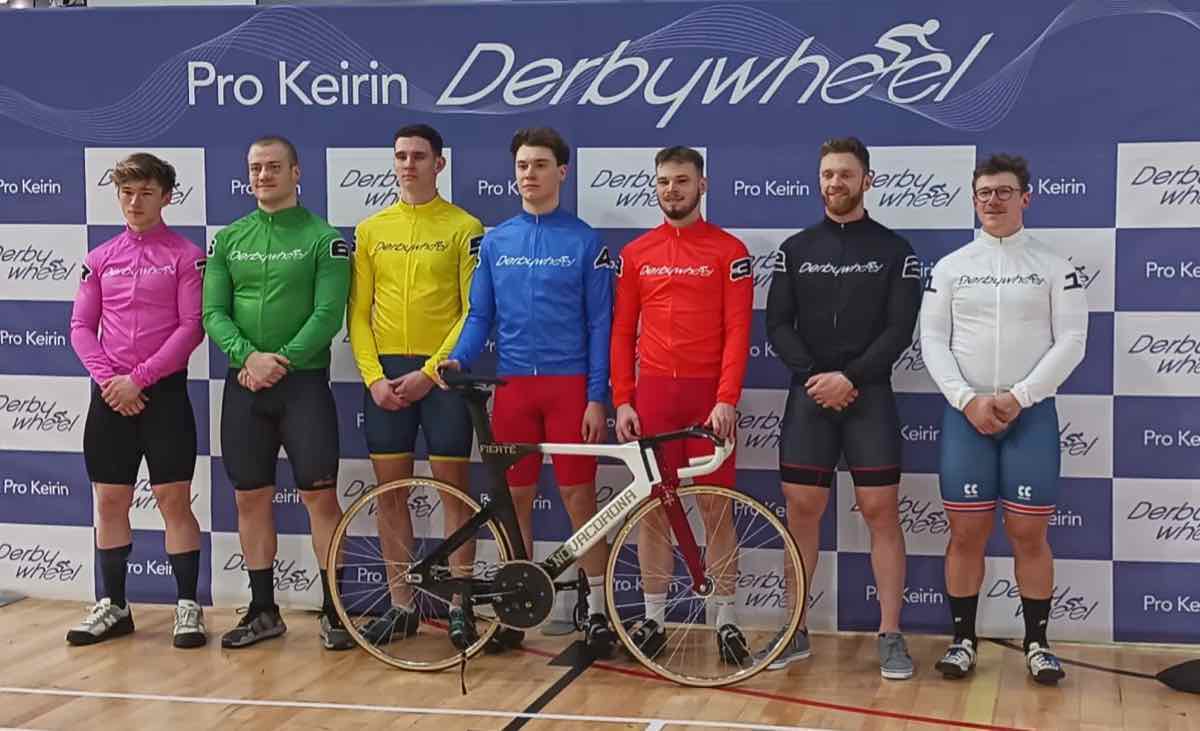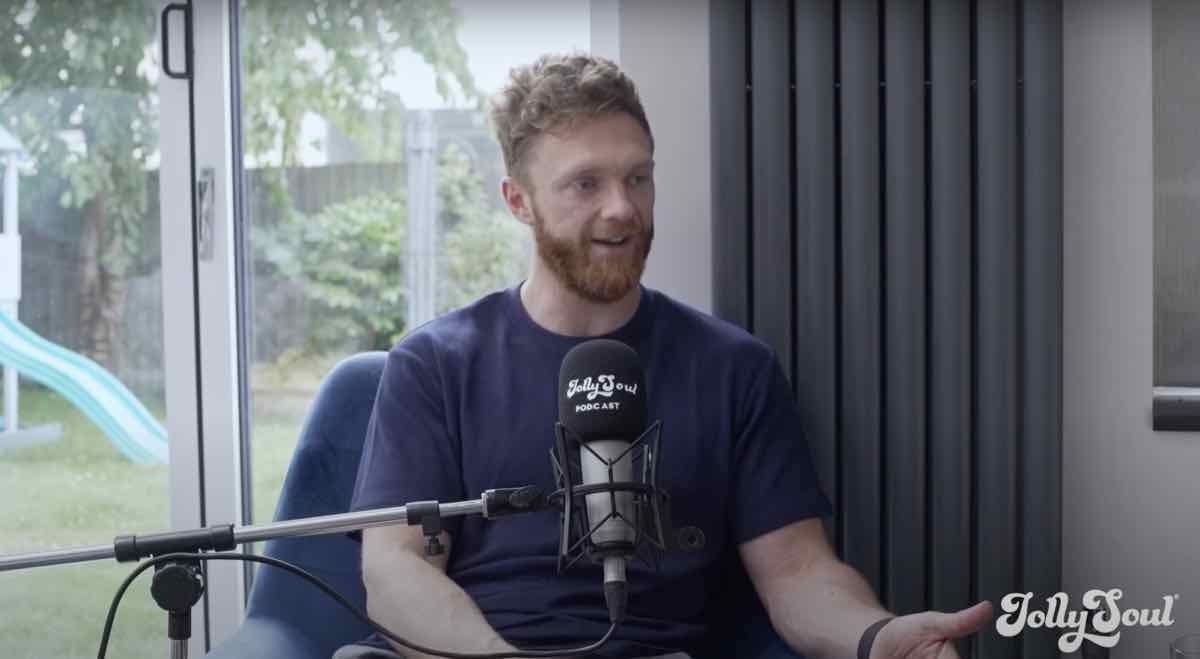British elite sprint champion Pete Mitchell has credited the prospect of a viable professional career with DerbyWheel for inspiring his return from competitive retirement – and ultimately, his greatest ever solo success.
As a sprint tandem pilot, Mitchell won multiple world championships and a silver at the Rio Paralympics. But he lost that role after a car accident which forced him to take almost a year out; and he retired from competition to develop his successful coaching business.
But as he explained to Katie Ross on the Jolly Soul podcast, the announcement of DerbyWheel as a sustainable model for professional sprint cycling forced him to reconsider his retirement.

‘You don’t win money in track cycling,’ he explains. ‘If you win a Nations Cup, which is the level below a World Championships, you get 500 EUR – and they’re in Hong Kong, Canada, Adelaide, so no one’s covering their plane ticket really. So there’s no money in it.
‘But in Japan and Korea they have a keirin series which is (among) the biggest betting sport(s) in the countries. They bet billion dollars a year on keirin racing. The craziest stat is the Japanese Grand Prix has more money bet on it than in British horse racing annually. It’s absolutely huge.
‘They’re trying to launch an international race series that’s funded by Korean keirin racing, but they’re going to have international riders racing around the world, basically for the Asian market to bet on. They are hoping there’s going to be 500 full-time professional cyclists that come off the back of this.

‘So I was like, great, train for that. They had the induction in January, so I trained for that and was going quite well, and they had to do like an assessment of the speed and whatever, and I was going well enough – I thought, oh, I reckon I might do okay at Nationals here.
‘I said I was never going to ride Nationals again because I raced it probably 12 times, and I got second once, I got fourth once, and every other time I’d been knocked out in the quarterfinals. And it doesn’t appeal to me to win the first round easily, get battered in the quarterfinals and go home.
‘But I was, like, I reckon I’m going fast enough that I kinda will be roughly in the mix. So I entered Nationals – like, I literally decided to enter about 6 weeks before, went and raced, and the short version is – I won.’
You can watch the full interview on YouTube, or download as audio from your preferred podcast platform.
